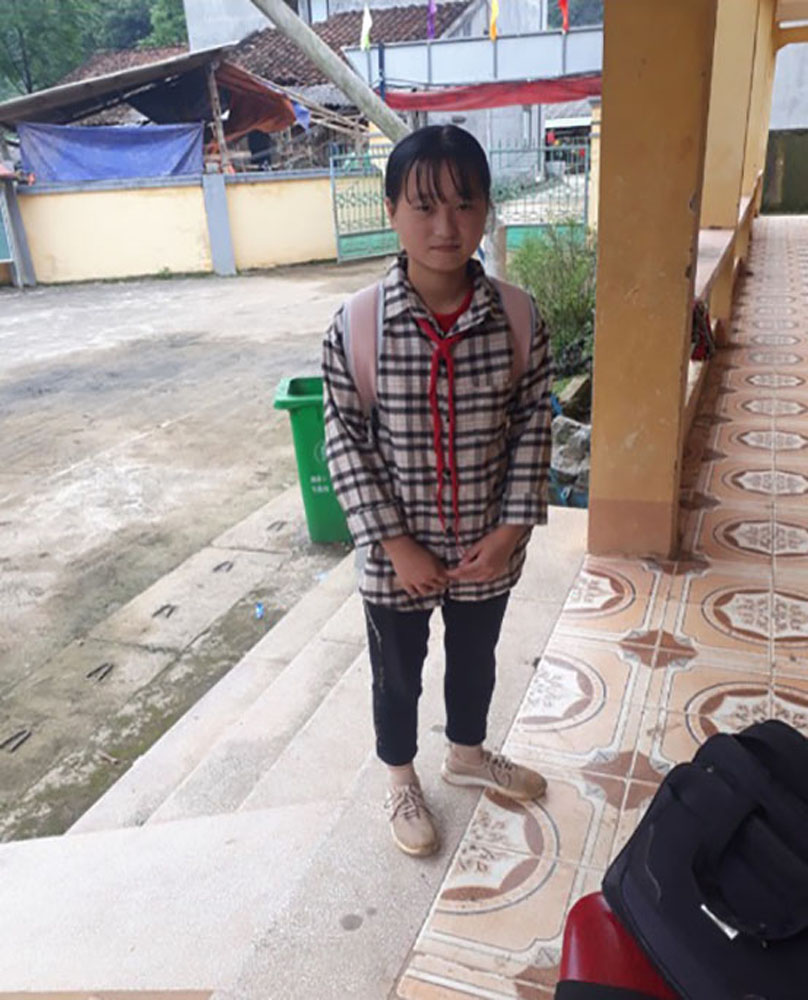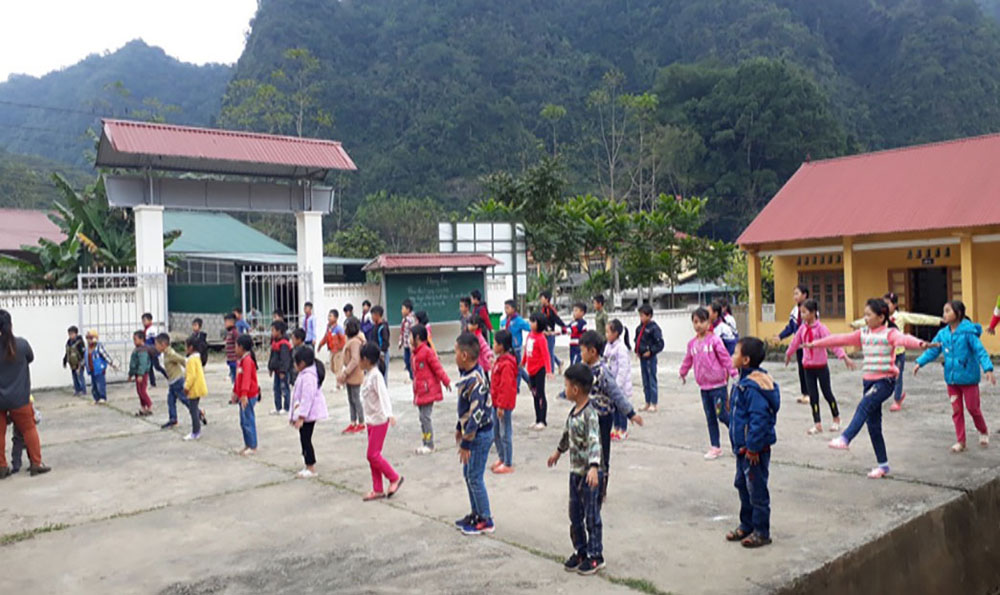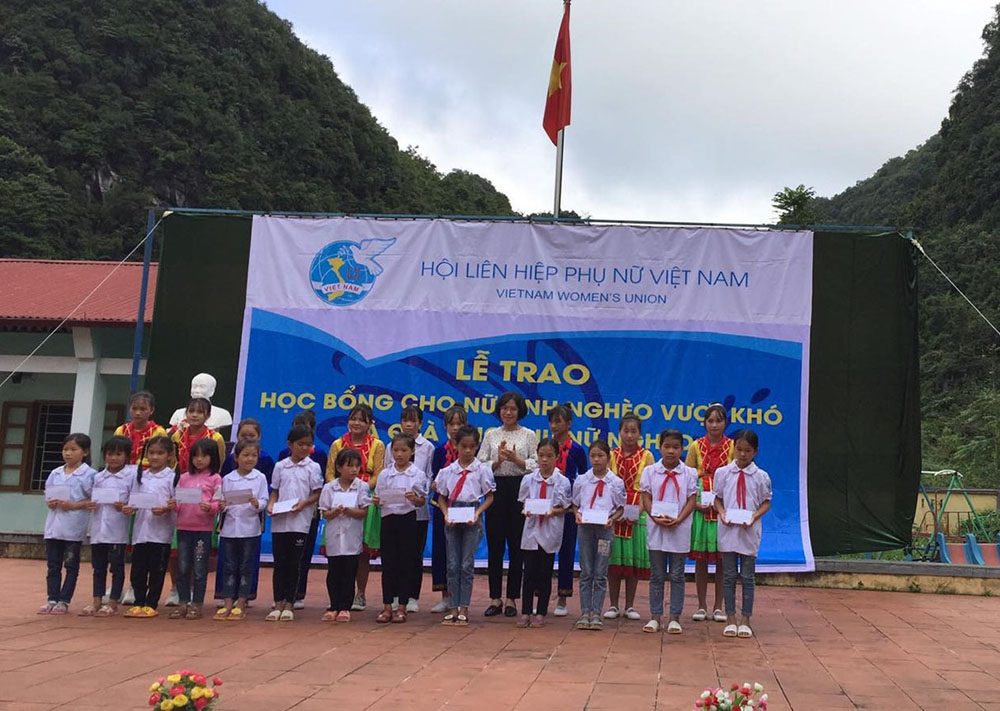 Download PDF of this full issue: v51n1.pdf (21.1 MB)
Download PDF of this full issue: v51n1.pdf (21.1 MB)From Vietnam Veterans Against the War, http://www.vvaw.org/veteran/article/?id=3950
 Download PDF of this full issue: v51n1.pdf (21.1 MB) Download PDF of this full issue: v51n1.pdf (21.1 MB) |
I first went to Vietnam in 1991 with 30 people on a Peace Walk. We were an eclectic group of peace activists and Vietnam veterans. The visit was a gesture of goodwill and citizen's diplomacy at a time when the United States still had a trade embargo against Vietnam.
We did not do much walking. We traveled by bus and train from Hanoi, to Ha Long Bay, to Hue, to Da Nang, to Ho Chi Minh City. Everywhere we went, we saw beautiful scenery and it was quiet. The cities were still untouched by the Western world. Most people traveled by bicycle, motorbike, or public bus. I was impressed by the Vietnamese love of art and poetry and also how hardworking they are. I enjoyed the way they liked to laugh – gently kidding each other.

|
|
Hoang Thi Nham, Van An secondary school, Ha Quang district. |
We were hosted by the Vietnamese government and the staff of the International Affairs Department accompanied us. They were also veterans in the American War (as they call it). They were very kind and gracious, and we really enjoyed their company. On the trip, we met with generals and other war veterans. Their attitude of forgiveness of Americans was a profound experience for all of us. Our veterans had deep healings after meeting "the enemy."
I was so moved by my visit to Vietnam that I decided to help other Americans have a similar experience. The next year, in 1992, I led a tour to Vietnam for Global Exchange, a non-profit based in San Francisco.
We were among the first Americans to visit the site of the My Lai massacre. A feeling of profound sadness still permeated that area. We met with the local women's organization. They told us that there was a lot of poverty and asked us for financial help in starting a micro-credit program. The program would help poor families start income generation projects, like raising chickens. They needed $2,000. I said I would try to find help.
Back in the US, I gave a public talk in Madison, Wisconsin about our visit to Vietnam and mentioned the women's request. Vietnam veteran Mike Boehm came forward and said he wanted to raise the money to fund them. That was the beginning of decades of charitable work in Vietnam coordinated by Mike, including building a Peace Park.
In 1994, I led my second tour to Vietnam for Global Exchange. While I was there, I met with the Vietnam Women's Union and we started The Vietnam Scholarship Program to help students living in poverty. Although education is free, the children still need to buy school supplies, school clothes, and sometimes a bicycle to get to school. In the poor rural areas of Vietnam, most families are subsistence farmers. They try to grow enough rice to feed their family for a year. The average income in rural areas is very low, about $130 per month.
The Vietnam Scholarship Program provides gifts of approximately $100 to students (in grades 1–12) who are working hard in school and come from families with a lot of hardships. We support girls because they are more disadvantaged than boys. The students and their families are so extremely happy to receive this support. This annual act of kindness continues to build goodwill between our countries.
The Vietnam Scholarship Program is administered by the Vietnam Women's Union, who select the recipient province and schools. Local teachers select the students. Each year our donors, including Vietnam veterans, support around 40 girls.
Here is a letter from one of the recipients:
My name is Hoang Thi Nham. I attend Van An Secondary School and am in 9th Grade. I am really lucky and happy to receive this noble scholarship. For me this is not only material support but also a great spiritual comfort to help me overcome all challenges in life.
Indeed, people often say "Every family goes through its own problems." Each person's situation is not the same as anyone else. When I heard about this scholarship, I knew there was more to it than the financial help. There is my fate, fragments of an unhappy life, but also an extremely energetic life.
The life that one experiences is alright, because together with that unlucky fate, there are your compassionate hearts. You gave us these extremely meaningful gifts. I am very touched and thank the aunts and uncles so much!
This scholarship will help me to cover expenses in my life and it will enable me to study hard so I can live up to the hope that the uncles and aunts have entrusted in me. I sincerely thank you!
—Hoang Thi Nham
We invite you to join us and help one or more students at $100 each. Checks can be payable to Friendship with Cambodia, the non-profit that wires the funds to Vietnam. Write Vietnam Scholarship Program on the memo line and mail it to Friendship with Cambodia, PO Box 5231, Eugene, OR 97405. Or you can donate online at www.friendshipwithcambodia.org. Donations are tax-deductible.
One hundred percent of your donation reaches the students because Friendship with Cambodia and the Vietnam Women's Union do not take administration fees. This program helps disadvantaged children and it is a gesture of peace and reconciliation which is tremendously appreciated.
Bhavia Wagner is the founder and director of Friendship with Cambodia and author of Soul Survivors: Stories of Women and Children in Cambodia.

|
| Van An Secondary school, Ha Quang district. |

|
| Girl Scholarship in Cao Bang. |